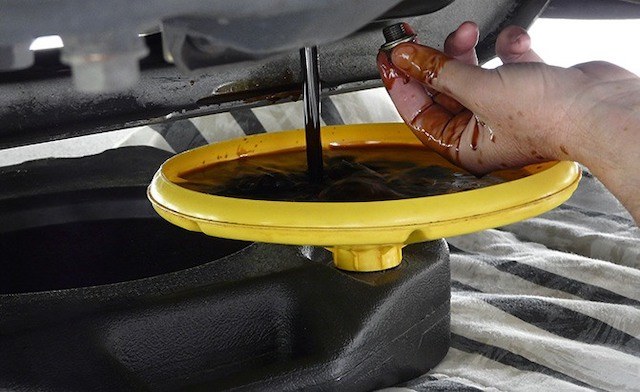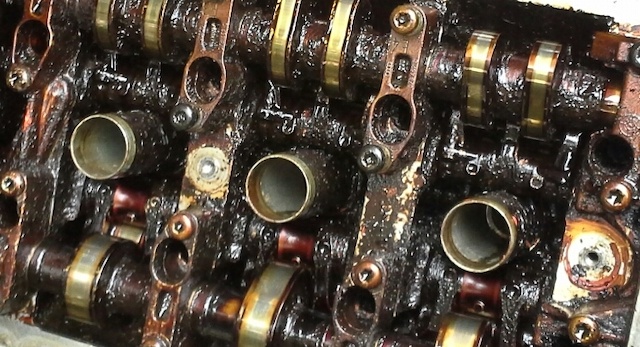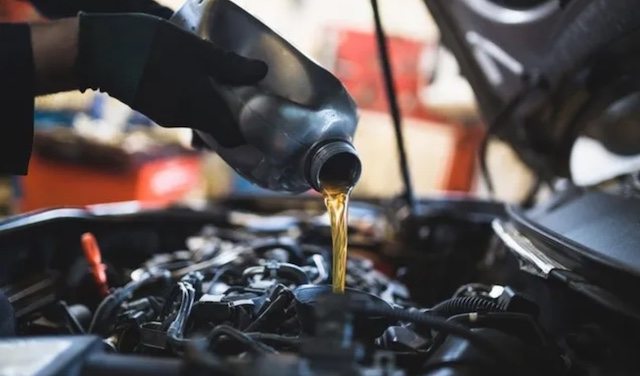What Happens When You Wait Too Long To Change The Oil

Motor oil isn't a permanent solution. It degrades over time and needs to be replaced regularly. Vehicle manufacturers typically recommend specific intervals for oil changes, which can vary depending on the type of oil used and the vehicle model. Here are some general guidelines:
- For passenger cars, oil should be changed every 3,000 to 7,500 miles, depending on whether you're using conventional or synthetic oil.
- Motorcycles also require oil changes every 3,000 to 7,500 miles.
- ATVs should have their oil changed after every 100 hours of operation.
- Snowmobiles need an oil change every 2,500 miles or before each season.
Following the manufacturer’s recommendations is crucial. Ignoring these guidelines can lead to serious engine damage and costly repairs.
Old Oil Turns Into Sludge – A Major Issue

Motor oil has a limited lifespan because it accumulates dirt, debris, and contaminants as it circulates through the engine. Over time, this buildup increases the oil's viscosity, turning it into thick, dirty sludge. This sludge can no longer lubricate the engine effectively, leading to performance issues and potential damage.
Motor oil plays more than just a lubrication role—it helps cool the engine by absorbing heat and transferring it away. In fact, it can reduce engine temperature by up to 40%. When oil becomes sludgy, it loses its ability to perform all these critical functions.
So, when motor oil turns into sludge, it can:
- Fail to lubricate engine components properly
- Reduce cooling efficiency
- Loose its cleaning additives, which help keep the engine clean
This leads to a range of serious problems that can ultimately result in engine failure.
1. Metal-to-Metal Contact
Without proper lubrication, metal parts within the engine start rubbing against each other. This metal-to-metal contact causes excessive wear and can lead to severe damage. Symptoms may include:
- Increased oil consumption
- Loss of engine compression
- Fouled spark plugs and oxygen sensors
If you notice any of these signs, it's often too late—engine damage may already be irreversible.
2. Engine Overheating
Dirty oil reduces lubrication, increasing friction and heat. An overheated engine is at risk of major failures, such as:
- Blown head gaskets
- Warped or cracked cylinder heads or blocks
- Engine seizure
Overheating can quickly lead to catastrophic engine failure if not addressed promptly.
3. Clogged Oil Filter
As oil becomes dirtier, it clogs the oil filter faster. This restricts oil flow, lowers oil pressure, and leaves engine components under-lubricated. Eventually, this can cause significant mechanical stress and damage.
Warranty Risks

Many vehicle warranties require regular maintenance according to the manufacturer's schedule. Failing to follow these guidelines could void your warranty, leaving you responsible for expensive repairs or even a full engine replacement.
Prevention Is Key
Regular oil changes are far cheaper than dealing with the consequences of neglect. Sticking to a maintenance schedule not only protects your engine but also helps maintain your vehicle’s value and reliability over time. Don’t wait until something goes wrong—stay proactive with your car care.
Beverage Cooler,Built In Beverage Cooler,Commercial Beverage Cooler,Wine Chiller
Foshan Sunnai Electrical Appliance Co., Ltd , https://www.sunnaiwinecooler.com
